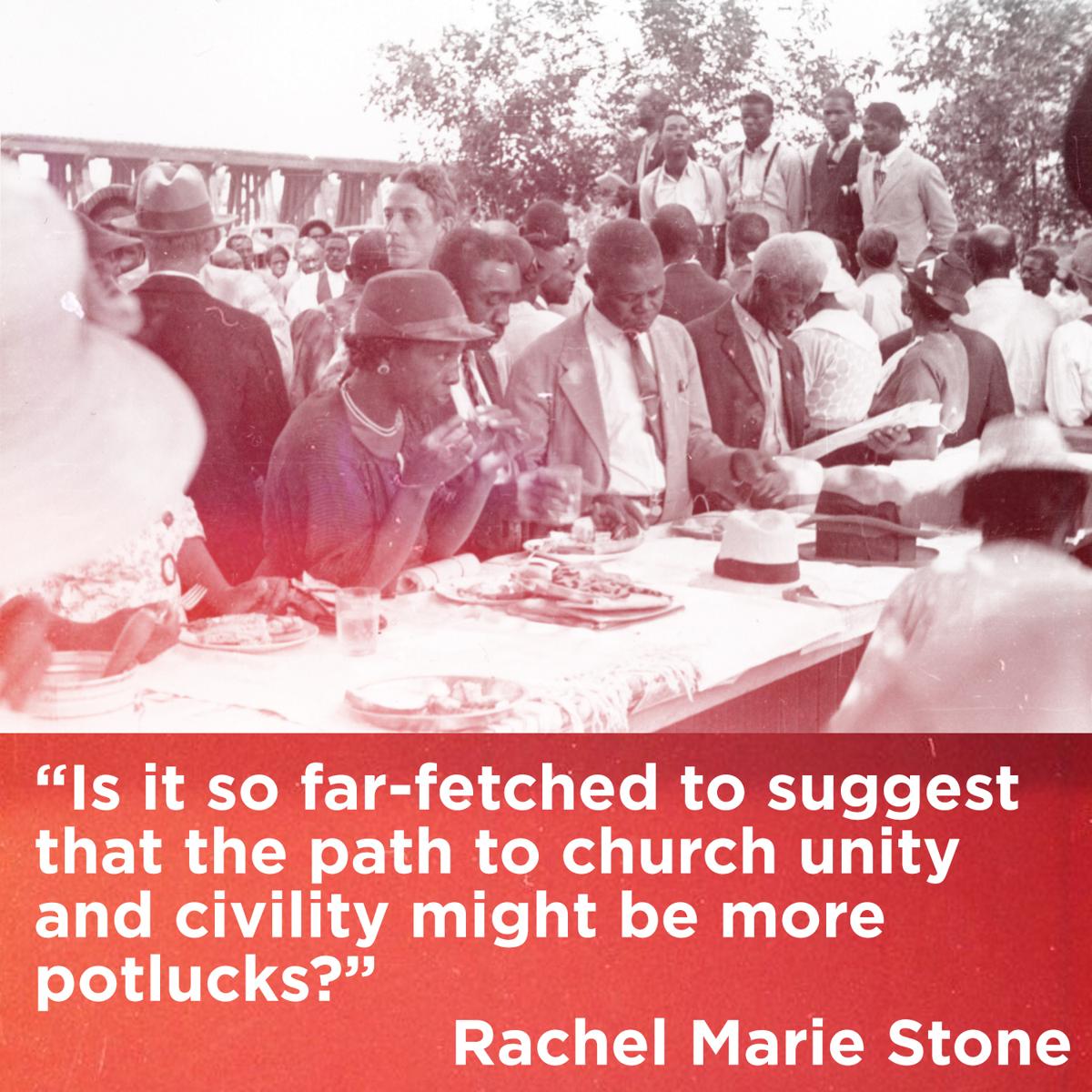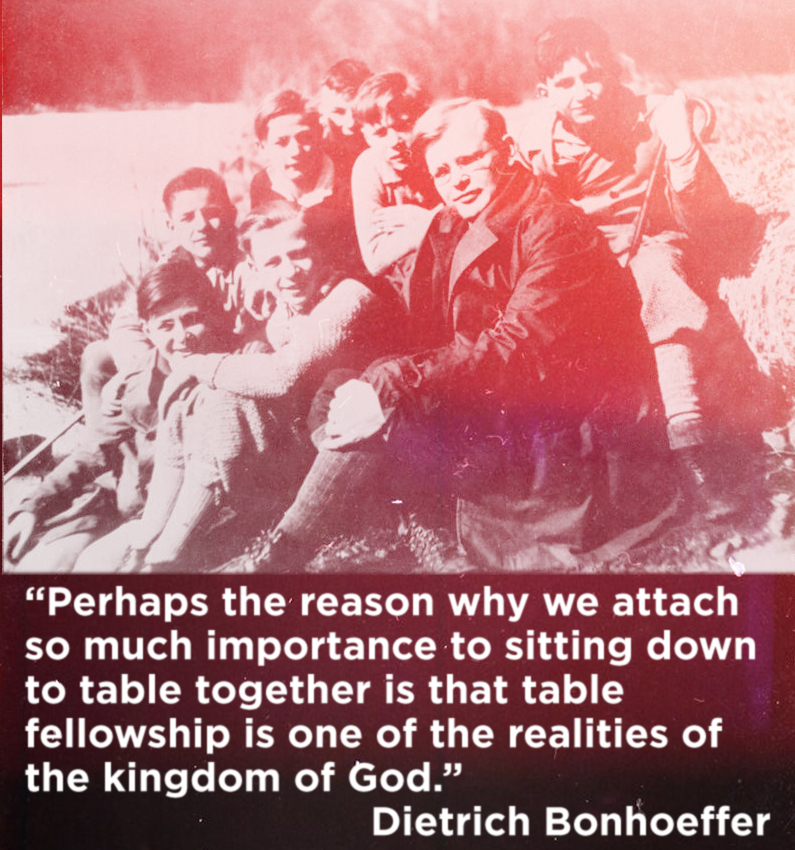Twelve of us had gathered at a retreat center for the weekend to talk about sexuality and the church—specifically, to talk about sexual diversity within the church.
All of us were Christians, but we represented a wide variety of churches and theological positions. Baptist. Reformed. Catholic. Episcopalian. Non-denominational. Conservative. Liberal.
Some, like me, identified as straight. Others identified as gay or bisexual. Some felt called and committed to celibacy. Others felt called to marriage. Others were not sure.
And we were there with no agenda except to talk—and to learn what it might mean to love one another well.
It may sound like a recipe for disaster, but though we arrived as strangers, apprehensive and guarded, we left as brothers and sisters in Christ. Make no mistake: We had not been homogenized. We were still a diverse group of people; we still disagreed on issues big and small and in-between—but we were, nonetheless, bound together in Christian love.
The intimacy of this retreat was profound. “Why,” one woman asked as she settled down onto the floor after several intense hours of discussion, tears, and hugs, “why is it so hard to find community like this in the real world?”
Everyone murmured in agreement.
Deeper than the Shallows
So many relationships, even at church—where we aspire to be bound to one another as the living, breathing, body of Christ in the world—never venture deeper than the shallows. Why, we wondered, are there so few contexts in our ordinary lives where we can speak openly and honestly and expect not to be rejected, but to be embraced: to be known and loved as we truly are, with all our flaws and failings?
The table, used well, approached with humility, can be a space in which a group of people who strongly disagree can discover within and between themselves something far better than mere civility: true Christian love and unity, despite diversity.
I have continued to ponder that question. Why is it hard to find spaces—even and especially in the church—where we can speak candidly about our doubts, our sins, our failures, our points of view, our dreams—without fearing rejection?
It is hard, I believe, because so many of us have all but ceased to aspire to true civility in our discourse. It is hard because in many quarters, doctrinal purity (as if there really could be any such thing on this side of heaven, theology being a profoundly human endeavor) too often takes precedence over the greatest commandment and the one that is like unto it: to love God, and to love our neighbor.
It’s hard because we are too often unable—or unwilling—to break bread (even if only symbolically) with people from whom we differ.
Paths Toward Successful Christian Dialogue
There were several reasons that our dialogue was not only not a disaster, but was, indeed, a success: an opportunity for the bonds of Christian love and peace to form and to strengthen. These reasons may be instructive to those who have not ceased aspiring to civil discourse—especially in the church.
1. Our gathering was successful because it was guarded by trust and humility.
Before the dialogues began, we covenanted to treat one another with utmost respect, which included respecting one another’s wishes for confidentiality and trust—and relinquishing any need we might have to be “right.”
2. Our gathering was successful because it was not a debate.
This is not to say that there is never room for debate, but only to emphasize that before debate can be meaningful—and if it is going to be civil—there must be recognition of shared humanity; of shared Christian identity.
This holds especially true when Christians seek to dialogue with Christians of other traditions—traditions that they might even hesitate to label “Christian”! In getting to know those who differ from us in a context where we have agreed not to try to change one anothers’ minds, we can be free to notice all the ways in which we—like it or not!—are undeniably neighbors, and, more than that, brothers and sisters in Christ.

3. Our gathering was successful because it was incarnational.
By which I mean only this: we were not in a Google hangout or (mercy me!) in the comments section somewhere on the Internet. We were gathered in a quiet place, free from wi-fi access and most other kinds of distractions, in a circle of comfortable couches and chairs, eating our meals together, singing together, praying together, crying tears and wiping them away together.
In a letter from prison to his close friend Eberhard Bethge, Dietrich Bonhoeffer wrote:
“One thing is that I do miss sitting down to table with others. The presents you sent me acquire here a sacramental value; they remind me of the times we have sat down to table together. Perhaps the reason why we attach so much importance to sitting down to table together is that table fellowship is one of the realities of the kingdom of God.”
Indeed: table fellowship is one of the realities of the kingdom of God. It is no accident that the early church had all things in common—including meals—and that, as biblical scholars have often noted, early church services were essentially meals. Today, sociologists and anthropologists find in their studies something many of us—including those in the early church, perhaps—have intuited: eating together brings people together.

Civil Discourse as a Shared Meal
In an article for the Atlantic, writer Cody C. Delistraty points to the work of sociologist Alice Julies, who, in her book Eating Together argues that shared meals can be astonishingly transformative. Eating together, she argues:
“Reduces people’s perceptions of inequality, and diners tend to view those of different races, genders, and socioeconomic backgrounds as more equal than they would in other settings.”
Is it so far-fetched to suggest that the path to church unity and civility might be more potlucks?
The Danger of Incivility: Shouting Matches or Worse
Our culture, as a whole, is gravely in danger of abandoning reasonableness and civility in public discourse. Perhaps nowhere is this tendency more visible than on the Internet, where sites, in clamoring for page views and, thereby, for advertising dollars, pander to our deepest fears and prejudices, confirming us in our basest inclinations. What passes for “dialogue” in our day are often little better than shouting matches, and this is as often as true of Christian as it is of everyone else.
Certainly, there is nothing in Scripture or in the Christian tradition to encourage us in incivility and hostility. On the contrary, Jesus’ prayer for the disciples (and for us) is that we may share in the unity Christ enjoys with God the Father. The entire New Testament urges us to aspire to unity and peace; to be generous, openhearted, humble, to share with one another, and to watch our mouths. The basis of this love—from which grows respect and a willingness to listen (which is another way of saying “humility”) is our unity in Christ. And this unity is symbolized most powerfully in the sharing of meals—in the breaking of the one bread—Christ’s body—to be shared by the many, so that we who are many become one.
I spoke above of “symbolically” breaking bread with others as a key to civil discourse. By that I simply mean that our shared humanity—evident and embodied in our shared, God-ordained dependence on daily food—is, or should be, enough to encourage us to aspire to civility and understanding.
“Whatever the character of the man, we must yet love him because we love God,”
John Calvin once wrote.
Eating with one another—and even imagining eating with one another—tacitly acknowledges our shared humanity and, therefore, our dependence on God. The table, used well, approached with humility, can be a space in which a group of people who strongly disagree can discover within and between themselves something far better than mere civility: true Christian love and unity, despite diversity.
I’ve seen it happen.
References
